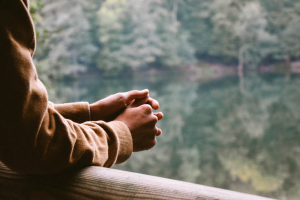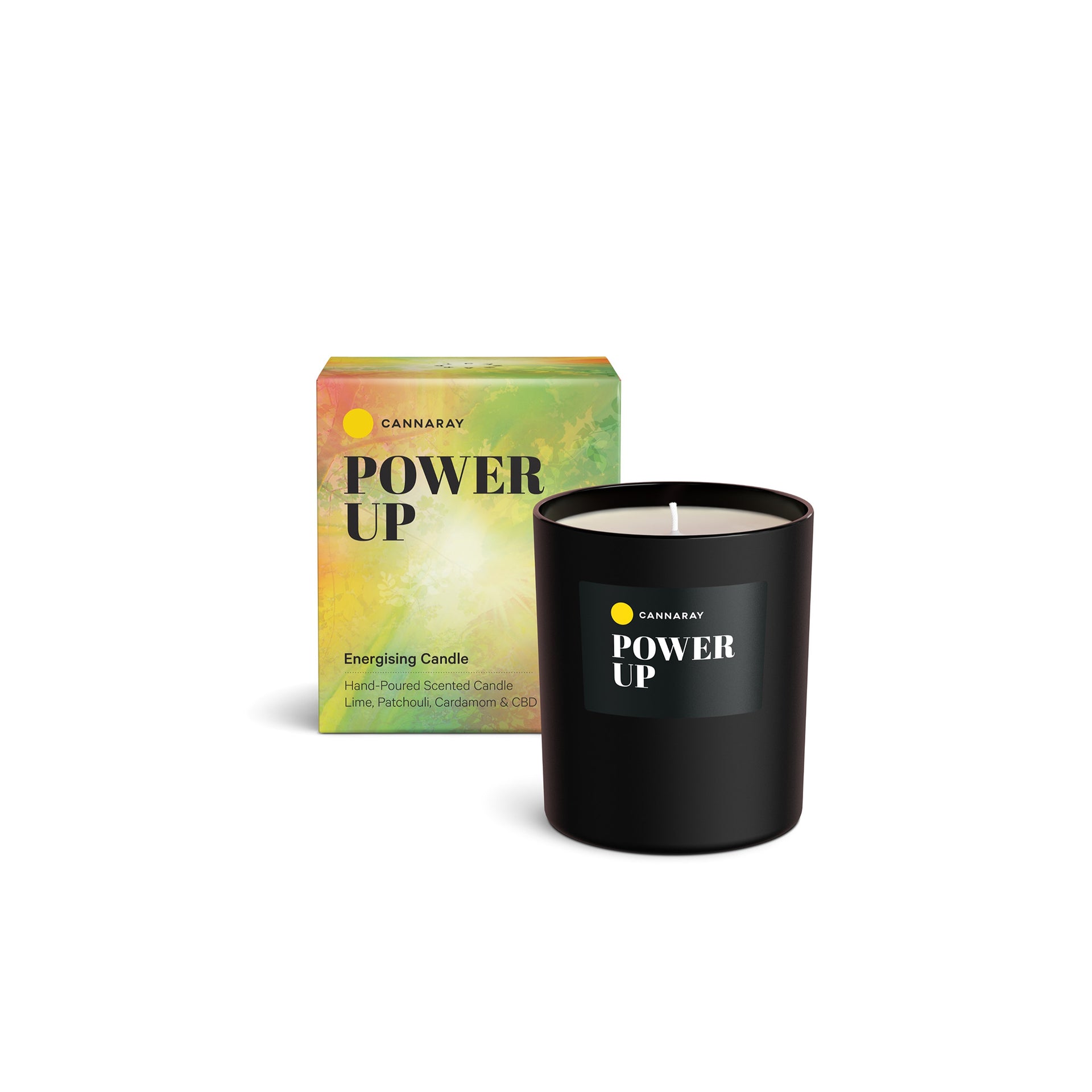We're more connected than ever. At least, that's what social media would have you believe. Rarely do we spend more than a few hours away from our phones – texting, scrolling or flicking through Instagram Stories. And, yet, according to a study by relationships charity Relate, we're experiencing a loneliness epidemic, with more than 45% of UK adults admitting to feeling lonely from time to time.
So, what can we do about feelings of loneliness? Here, we reveal tips to help you manage, including advice from our resident psychiatrist Dr. Balu.

What Does it Mean to be Lonely?
“Loneliness is not just about being alone,” says consultant psychiatrist Dr. Balu and Mental Health Advisor to Cannaray. “It's about a lack of meaningful connection, and it can sometimes stem from or cause common mental health issues, such as anxiety or depression. People experiencing panic attacks, post traumatic stress disorder and a lack of control can often feel lonely, as they get the sense that nobody else understands them.”
Similarly, prolonged feelings of loneliness may lead to those same, common mental health problems. “We're all social beings,” says Dr. Balu. “We need human contact to feel connected, and if that doesn't happen, it turns into more stress, which can trigger other negative emotions.”

1. Acknowledge and Accept Your Feelings
The first step to managing loneliness is to acknowledge that you feel lonely. This might feel strange when you start, but actually admitting to yourself how you feel can put you on track to making life changes. By contrast, ignoring how you feel only deepens those feelings of isolation, because you know that something's not right, but you're trying to push it away.
“Once you start accepting that you're lonely, you look at connecting,” explains Dr Balu. “Lack of connection is the most common driver of loneliness. I've had patients who have been with a group of people or with a big family, and still felt lonely. This happens with general loneliness, and it could be due to many reasons. The sooner you recognise these feelings, the sooner you will start to identify the cause.”

2. Connect with Others
Now you've acknowledged how you feel, you can start taking steps to ease your feeling of loneliness. Your first task is to make connections, whether that's by spending time with loved ones you already know, or meeting new, like-minded people. If you feel like you can, talk to a trusted relative or friend and tell them how you're really feeling. You don't have to go too deep if you're not quite ready; simply say that you've been feeling lonely lately.
We know that can be daunting, so if you're not prepared to talk about loneliness yet, instead look at ways of improving your social life by planning quality time with loved ones. When we're struggling, we can get into a cycle of loneliness that sees us withdraw more and more (and more) over time. This can lead to – or even be caused by – social anxiety, so our loneliness just gets worse.
However, don't see this as a tick-box exercise. “Telling yourself you have to make 20 calls per day, or berating yourself for not picking up the phone will make you more stressed. As will speaking to people who aren't supportive,” adds Dr. Balu.
If you don't feel ready to open up to people you know, there are a host of support groups that help you make friends and build meaningful relationships within your local community, such as Next Door and MeetUpMondays. Book clubs, running groups and volunteering also help you meet new people, forming bonds based on common interests.


3. Connect with Yourself
Connecting with yourself plays a big role in managing loneliness, too. “Do not hesitate to express yourself. Lots of people feel lonely because they are not confident, they have a fear of being judged, they have been let down in the past and they have trust issues,” says Dr. Balu.
“It's very important to be able to express oneself. If you're not able to express yourself in words to somebody else, you can be creative. Try drawing, writing or singing for yourself. This is very important, because once you start expressing how you feel, you start getting that connection going – both with yourself and with others.”

4. Have Self Compassion
“Self-compassion is important, so don't be hard on yourself,” urges Dr. Balu. “When you put extra pressure on yourself – worrying about deadlines, for example – you put yourself in a bubble, where you can end up feeling more alone. It's about having the perspective to say ‘it's okay, I'm doing okay'.”
A big part of having self-compassion is embracing self-care. Whether that's giving yourself a relaxing CBD massage or taking your vitamins each night, make sure you're making time to look after your mind and body.

5. Put Social Media into Perspective
Social media is like a highlight reel. People use it to show the best parts of their lives, and when you’re feeling lonely, those smiley group pics can hit hard. But remember: you’re only seeing one very small part of someone’s day, so try not to compare. If you find your feed is affecting you, try taking a social media break.
“One thing I ask my patients is, ‘Are you using social media to enhance your life? Or are you letting social media control and distress your life?'” says Dr. Balu. “If you are inspired by the posts you see or you're using social media to connect with somebody, that's a good thing.” However, if you find you experience negative emotions after scrolling, it may be time to take a step back.

6. Try Volunteering to Meet New People
There are three big benefits of volunteering: not only are you meeting new people, but you’re also helping others, and feeling the sense of achievement that comes with that. So, look into local ads, Facebook groups and volunteering sites for opportunities. Whether it's working at a charity shop or cleaning up a nearby park, there’s plenty of help needed – and it might just help you too.

7. Look Into Becoming a Pet Owner
This isn't a decision to be taken lightly, so don't do it on a whim, but if you've already been thinking you'd like to get a pet then you could start doing more research. It's important that you can give your pet everything it needs to thrive and be healthy, so there's a lot to think about. But if it sounds right for you, and for the furry friend you have in mind, a pet can be a great source of comfort. Dogs, in particular, are great companions who not only make life at home feel less lonely, but also encourage you to spend time with nature every time you take them for a walk.

8. Know When to Seek Professional Help
Don't wait for loneliness to become unbearable before you seek professional advice. “Prevention is better than cure,” explains Dr. Balu. “Mental health problems are very common, so there's nothing to be ashamed of when asking for help.”
He adds that, because the sense of isolation can lead to further mental health problems, it's important to take your feelings seriously. “Complications of mental health problems are what cause disability and distress, and that is what we're trying to prevent by seeking professional help much earlier in the process.”

Dr P Balu
Dr. Balu is a Consultant Psychiatrist and scientific advisor to Cannaray, specialising in mental health disorders including anxiety, depression, stress and addiction.



































